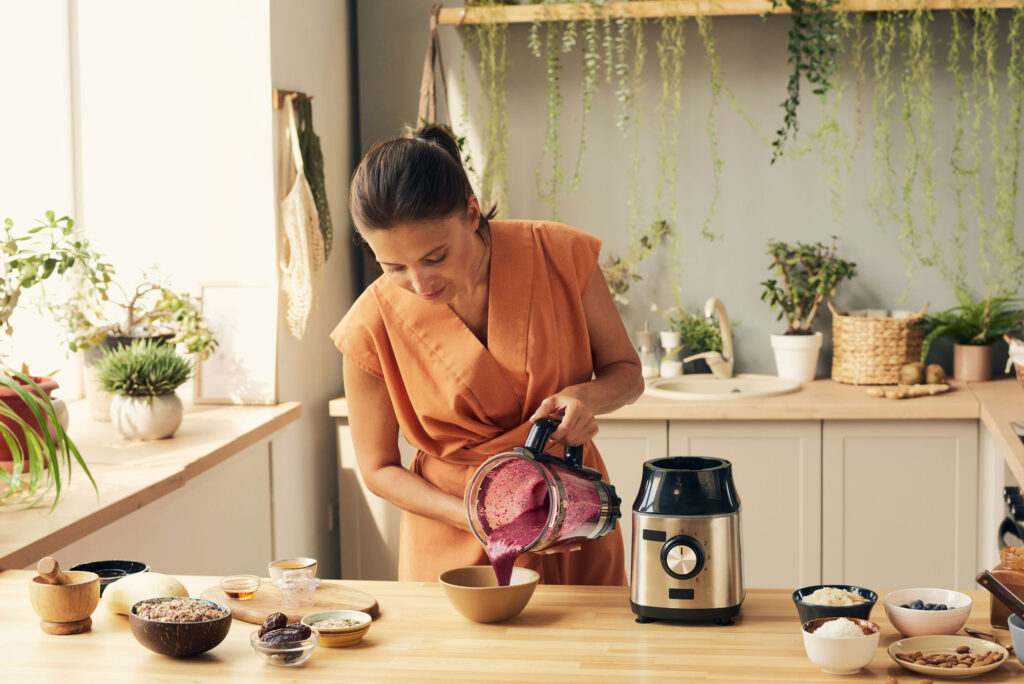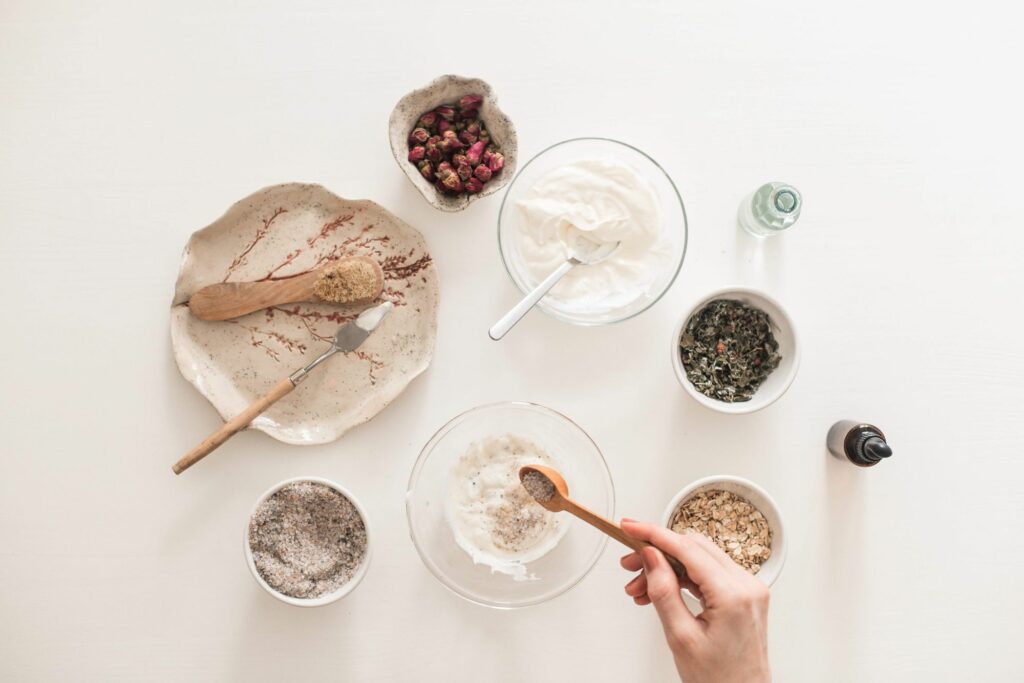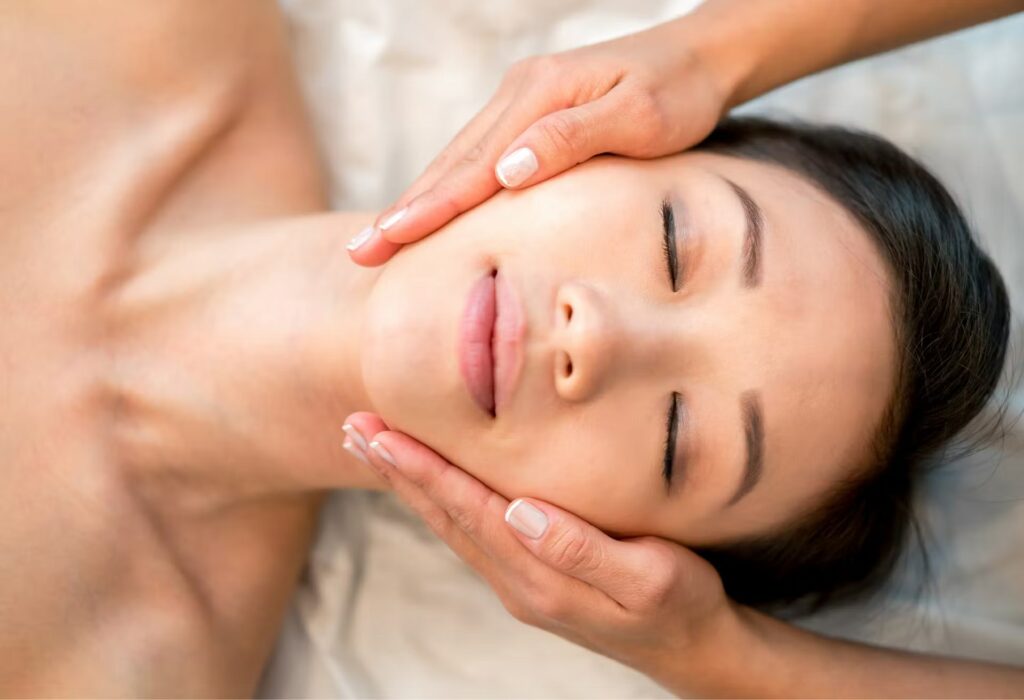I know that many of you are ready to make 2021 the year you get on top of your anxiety. And for most people, this means reducing stress and overcoming fears.
Here, we’re exploring a few of those lesser-known anxiety triggers so you can make the lifestyle choices that support you – not sabotage you. While these goals are an important place to start, there’s more to the puzzle than meets the eye. Anxiety presents slightly differently for everyone and we all have different triggers. Some we know (like public speaking) and others we might not be so aware of (like your morning latte…).
7 Lesser-Known Anxiety Triggers and Tips to Manage Them
1. Unresolved stress.
It’s no secret that stress causes anxiety, but we’re not just talking about any old stress here! Unresolved stress is the stress that lingers after you think you’ve moved on from a stressful event or phase in your life, but your body hasn’t quite kept up.
To fully complete the stress cycle, we need a release. The “fight or flight” response primes our bodies for action. And when faced with real danger, we burn up this extra energy by either fighting or running for our lives.
With modern-day non-threatening stressors, we rarely get the chance to release the tension. As a result, stress never entirely escapes, and it builds up to anxiety.
Calm Tip: Complete the stress cycle with heart-pumping exercise and acupuncture.
Exercise mimics the fighting or fleeing we might have done if our stressors were life-threatening. It offers the body a chance to burn off steam and release any residual tension we’re holding. The endorphins that exercise releases soothe the mind, and we can start fresh. Even if you were stressed for a positive reason, like completing a doctoral program or winning a work proposal, we need a physical release to move forward. Similarly, acupuncture helps to release tension on a deep level, release endorphins, and wipe the slate clean.
2. Skipping meals and unmanaged blood sugar.
Believe it or not, food affects your mood. This is most clear when we look at the relationship between blood sugar and anxiety levels.
Your blood sugar levels are closely tied with your body’s stress response. When blood sugar drops (like after skipping a meal), the body releases adrenaline and cortisol to stimulate the liver to make more blood sugar and maintain homeostasis.
It is this rush of adrenaline and cortisol that can feel like anxiety or trigger a panic attack. Adrenaline makes your heart race, your palms sweat, and your muscles shake. These body signs trigger both physical and mental feelings of anxiety.
Calm Tip: Eat a balanced diet and 3 meals per day.
Low blood sugar can affect anyone, not just those with diabetes. This drop can happen when you drink too much alcohol, exercise more than usual, or eat too many sugary or high-carb foods. To prevent low blood sugar and keep anxiety at bay, make sure you eat three meals a day and always have a healthy snack on hand. Avoid meals that are high in sugar and carbs (like donuts or bagels) and instead opt for blood sugar-friendly meals that have a balance of protein, healthy fat, and whole grains.
3. Medications or supplements.
Certain medications (both prescription and over-the-counter) have been known to cause anxiety symptoms. This occurs when ingredients in the medicine or supplement either stimulate your sympathetic nervous system or simply irritate your body in some way. A common example is OTC sinus or congestion medications with pseudoephedrine. Birth control pills are also well-known to cause or exacerbate anxiety in some people.
Calm Tip: Talk with your doctor, then meditate.
If you’ve noticed an increase in anxiety symptoms since starting a new medication or dose recommendation, reach out to your doctor. They may manage or modify your plan to keep you healthy and reduce side effects like anxiety.
If you are unable to find a better balance with your medications, meditation always comes in handy. Mindfulness and breathwork calm the mind and can help you feel more at ease in your body.
4. Caffeine.
Got the coffee jitters? While your morning and/or afternoon cup of joe might feel like a necessity to take on the day, it could be triggering your anxiety.
The caffeine in coffee, sodas, and other stimulants increases the brain’s alertness by releasing adrenaline and blocking adenosine (a chemical that makes us feel tired). In high doses, caffeine can cause side effects far beyond the focus and jitters we’ve come to expect. Issues like insomnia, anxiety, irritability, hostility, and psychotic symptoms have all been related to excess caffeine consumption.
Studies show that those with anxiety disorders like panic disorder or social anxiety disorder are more sensitive to the effects of caffeine (especially anxiety-inducing effects like increased heart and breathing rate).
Calm Tip: Wake up with something new.
If you suspect caffeine might be triggering your anxiety, it’s time to switch things up. Thankfully, there are tons of low-caffeine or caffeine-free options to keep up your morning “coffee” ritual without the anxiety. Check out these delicious and healthy coffee alternatives for anxiety sufferers.
5. Alcohol.
After a long and stressful day, many of us turn to a glass of wine or a cocktail to relax. Or, perhaps you feel most free and happy when having drinks with your best friends? But, as anyone who’s had a little too much to drink can attest, those feel-good moments don’t last long.
Alcohol is one of the biggest anxiety triggers. Along with increasing heart rate and even causing palpitations, alcohol actively changes the levels of neurotransmitters in the brain. One of the main chemicals affected is serotonin, our feel-good hormone. Drinking (and the subsequent alcohol withdrawal) can deplete our serotonin which makes us feel anxious and depressed.
The effects of alcohol tend to last a few hours to a day or more. With regular drinking, however, chronic anxiety can develop.
Calm Tip: Keep it moderate and try healthy mocktails.
Alcohol is not all bad – if you keep it to 1-2 drinks per week. Red wine is touted as one of the healthiest alcoholic drinks, but it does increase palpitations in some. Replacing your evening cocktails with something more supportive for your mental health is the better option. There are many delicious mocktail recipes that look and taste like a treat. You can even find trendy alcohol-free “spirits” like Seedlip and Kin Euphorics to really take your mocktails to the next level!
6. Lack of sleep.
Anxious thoughts keep us up at night. Anxious thoughts wake us up early. And a lack of sleep can make these anxious thoughts even worse…what are we to do?!
It’s true – getting a restful night’s sleep can feel impossible when we’re managing anxiety. But, better sleep is just what we need to keep our anxiety levels in check. Studies show that poor sleep quality and insomnia are likely to increase anxiety symptoms and perpetuate the cycle.
Calm Tip: Establish healthy sleep rituals.
Sometimes getting the sleep you need requires some clever thinking. Thankfully there are a few other ways we can trick our brain into relaxing and falling asleep. The following exercises teach the brain that it’s time to rest and are helpful for relieving any residual stress or anxiety from the day:
• Progressive muscle relaxation
• Meditation
• Yoga nidra
• Acupuncture
• Weighted blankets
7. Fixed mindset.
Mindset is everything. But when you’re dealing with the challenges of anxiety on top of the challenges of daily life, it can be hard to stay focused on growth and opportunity.
Still, research shows that your thoughts, beliefs, and habits have a major impact on anxiety levels and mental health. Having a “fixed mindset” has proven to be one of the biggest triggers for experiencing anxiety and stress.
Someone with a fixed mindset will believe that the way they are or feel is static and cannot change. Anxiety may be a fact of life for this person, and they will feel they are stuck with it. Unfortunately, this mindset seems to predict the future. One study revealed that those with a fixed mindset were more likely to experience ongoing distress and anxiety compared to those with a more opportunistic “growth mindset.”
Calm Tip: Read Carol Dweck’s book, Mindset, and start a growth journal.
Carol Dweck is one of the leading researchers in the world of mindset and thought change. Her research has opened up a whole new world of opportunity for personal growth and development, much of which she shares in her book. Here you’ll find the tools to start embracing a growth mindset and creating your future for yourself. I recommend journaling along as you read the book to better understand where a fixed mindset may be limiting you in your anxiety and how you can embrace growth and resilience.
Learn From Your Anxiety & Say “Yes” to Better Days
How many of these lesser-known anxiety triggers might be affecting your mental health? If there are a few, don’t worry. Being aware of these potential factors and how they affect your anxiety is the essential first step to taking back your power.
If you’re feeling overwhelmed or lost, we’re here to help. Calm San Diego offers holistic treatment plans that help you better understand your brain, your body, and your potential. We’ll guide you with natural, accessible strategies that help you learn from your anxiety, grow more resilient, and say “yes!” to better days.
The only thing you have to do is say “yes” to starting. Schedule a consultation to begin your journey!





